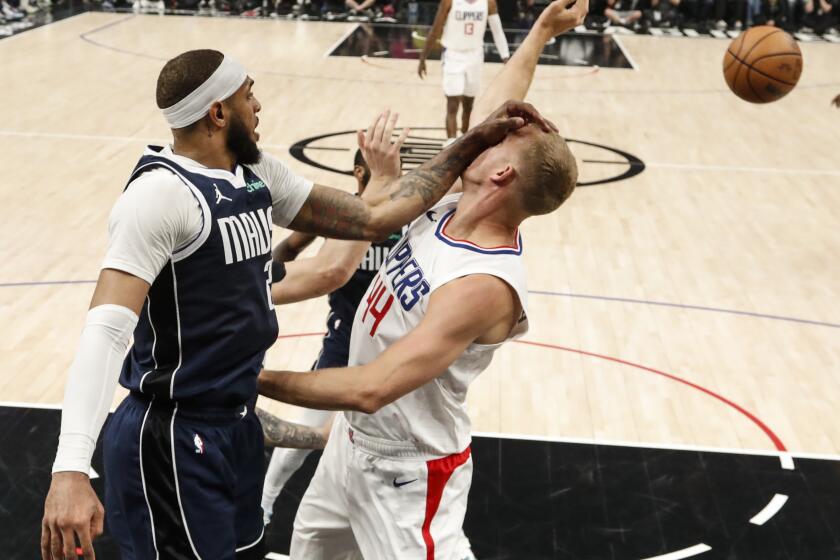Robinson had the respect of this family
Yankee Stadium may be known for baseball, but for my older brother Tim and me, it represented black college football at its best when we were growing up in New Jersey.
Nearly every year, my father, Elwood, made it a family event to attend the “classic” game between longtime rivals Grambling and Morgan State.
My father played football for Morgan State in the late 1940s and often talked with pride about his days playing against Grambling and Coach Eddie Robinson. He was proud of his career and always looked forward to hooking up with his former teammates the weekend of the game.
Robinson, the legendary coach who won nine black college championships and sent more than 200 players to the NFL, died late Tuesday at 88.
It was always great to watch my dad reminisce about his playing days. Although Robinson coached my father’s rival school, my dad often spoke highly of Robinson’s great impact on not only football but society as a whole.
My brother and I were frequently reminded of how Grambling had helped open doors for black football players to get scholarships at predominately white universities.
I remember when Wilbur Jackson, a standout running back at Alabama in the early 1970s, became the first black scholarship player for Coach Bear Bryant. Jackson’s hard-running style was a major hit in our household because he was “almost as good as Tank Younger was in college,” according to my father.
Younger was an all-everything running back who played for Robinson. In 1949, he signed with the Los Angeles Rams to become the first player from a black college to join an NFL team.
My father always gave the edge to players from his era because of a premise I did not completely understand as a youth. He would tell me that players such as Younger were better because they had to compete against the best every day in practice.
With the black colleges able to pick off the “cream of the crop,” they were loaded with talented athletes hungry to play. My father’s theory was that Jackson played against inferior competition because blacks were still limited at the major-college level during the 1970s.
According to my father, Robinson’s dominant Grambling teams had better players than any Associated Press No. 1-ranked team because of the high concentration of quality athletes that competed at black schools.
But by the mid-1970s, that all had changed because historically black colleges were no longer the lone option for black athletes. Schools such as Grambling could not keep up once major college programs began to open their doors to all athletes.
My brother and I were multi-sport high school athletes who attracted recruiters from all over the country to our New Jersey home. And though our father was a black college graduate, we did not get recruited by any black schools.
And guess what. My father couldn’t have been happier.
To him, it was great to see his sons receive football scholarship offers from schools such as USC, Notre Dame, Alabama, Clemson and Penn State. He thought it was just wonderful.
But one has to wonder about what black athletes have lost since the days when men such as Robinson and Eddie Hurt -- who coached football, basketball and track and field at Morgan State for more than 40 years -- ruled.
They were much more than coaches to their student-athletes. Sure, they cared about winning, but they also took stock in their athletes and did their best to get them ready for the real world.
Robinson, the son of a sharecropper, touched the lives of many more than the four future Pro Football Hall of Fame members he coached. He loved to talk about the players he coached who used their education to become working professionals and respectful family men.
Robinson loved to talk about men like my father, who loved to talk about men like Robinson.
More to Read
Get our high school sports newsletter
Prep Rally is devoted to the SoCal high school sports experience, bringing you scores, stories and a behind-the-scenes look at what makes prep sports so popular.
You may occasionally receive promotional content from the Los Angeles Times.






